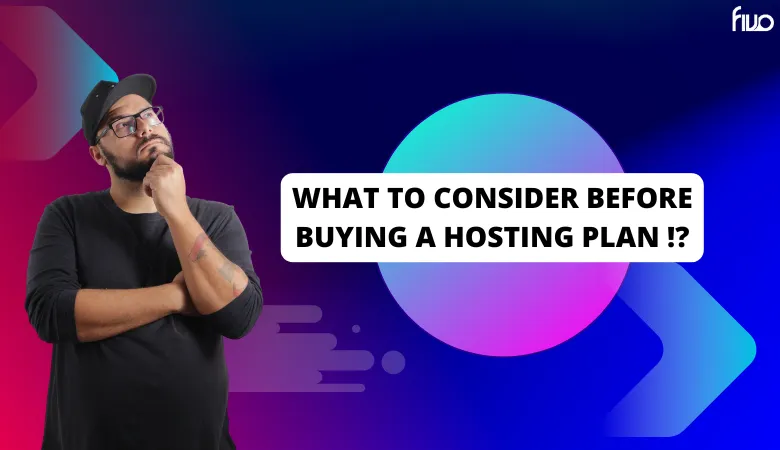
Choosing the right hosting plan is one of the most important decisions you’ll make when launching a website. At CloudFivo, we believe a good hosting foundation can make or break your online success. Whether you’re starting a blog, an e-commerce store, or a corporate site, here are the key things you should consider before buying a hosting plan:
1. Understand Your Website’s Needs
Not all websites are created equal. A small portfolio site doesn’t need the same resources as a busy online shop. Ask yourself:
-
How much traffic do you expect?
-
Will your website store a lot of media files?
-
Do you need special software (like WordPress or WooCommerce)?
2. Types of Hosting
There are several types of hosting services, and choosing the right one depends on your goals:
-
Shared Hosting – Affordable but limited in resources. Best for small websites.
-
VPS Hosting – Offers more control and performance. Great for growing businesses.
-
Cloud Hosting – Scalable and reliable, perfect for high-traffic or mission-critical websites.
-
Dedicated Server – Full control and maximum performance. Ideal for large-scale projects.
3. Performance and Speed
Website speed affects SEO and user experience. Make sure your hosting provider uses:
-
SSD storage
-
Optimized server configurations
-
A content delivery network (CDN)
-
Data centers close to your target audience
4. Uptime Guarantee
Downtime can hurt your brand and revenue. Look for a hosting provider that offers a minimum 99.9% uptime guarantee and has real-time monitoring.
5. Security Features
Security is non-negotiable. Check if the hosting includes:
-
Free SSL certificates
-
Daily or weekly backups
-
Firewall and DDoS protection
-
Malware scanning
6. Customer Support
Things can go wrong—fast, reliable support is essential. Choose a hosting provider that offers:
-
24/7 live support
-
Knowledgeable staff
-
Fast response times
7. Scalability
As your business grows, your hosting should grow with it. Choose a provider that allows easy upgrades without downtime.
8. Pricing and Hidden Fees
The cheapest option is not always the best. Look out for:
-
Renewal prices
-
Additional costs for backups or email
-
Hidden fees for exceeding bandwidth
9. User-Friendly Control Panel
Managing your website should be easy. A good hosting plan comes with cPanel, Plesk, or a custom dashboard that makes it simple to install apps, manage emails, and monitor performance.
10. Reputation and Reviews
Do your research. Look at independent reviews and customer feedback to get a feel for the hosting company’s reputation.
